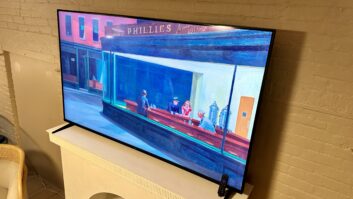As e-commerce emerges as a factor in consumer electronics retailing (TWICE, April 12, p. 1), manufacturers are in the embryonic stage of developing strategies to deal with, and capitalize on, the new phenomenon.
Some have begun rather limited direct sales to consumers with very limited lines and at full price; others indicate they will use their own web sites as education tools; and many have not yet set guidelines to virtual retailers or traditional dealers with sites as to how, and at what price, to sell their products.
However, one message became a consensus, and that was made loud and clear by those suppliers interviewed by TWICE in recent weeks: They will do nothing to undermine or alienate their existing retailer base.
Here is a rundown of current CE manufacturer e-commerce policies, with the understanding that most strategies are still under development:
Samsung: The company is currently selling merchandise on its site (www.sosimple.com). “We are selling our award-winning products at a premium price, but not the full line. We also charge for shipping and local tax,” said Andy Kritzer, senior manager/marketing communications. “We certainly do not want to jeopardize our relationships with our retailers.”
Samsung is also looking at establishing intranet and extranet services for its retailers and in-house sales force.
Pioneer: Although Pioneer has an online store that sells closeout merchandise, the supplier has not yet developed a full-fledged e-commerce policy, a company spokesperson said.
Sharp: The company’s Consumer Electronics Group is not yet selling product on the web, but Sharp has formed an Internet Business Initiative Group that is involved in business-to-business, but not consumer, sales.
Sharp product has appeared on the web. According to a company spokesperson, “Some are selling our CE products at a full retail price and are buying product from us. However, there are others who don’t buy from us and are buying from distributors or retailers that will transship.”
Sony: The company has policies “that relate to sales to dealers who have web sites. Dealers must be approved and follow our guidelines,” a company spokesperson said. Although Sony did not share those guidelines, the firm did say that it is “studying direct-to-consumer [CE] sales. But there are no plans at this time.”
Sony has sold Vaio PCs and peripherals, as well as certain A/V products that are involved with PCs, direct to consumers via the web.
Panasonic: Run-of-the-mill and hard-to-find accessories are the only products that Panasonic is currently selling direct to consumers, and some retailers and service companies from its web site. Panasonic’s e-commerce policy is currently “under development.”
Thomson Consumer Electronics: The Thomson Dealer Network was just launched by the company as an information tool for retailers. It provides info on the company’s sales organization, product and spec sheets, policies, technical service information, co-op ad guidelines, and the like, said Charlie Short, strategic channel sales VP/general manager, and Mike Droese, project manager for e-commerce.
Thomson has not yet set a policy on direct sales to its consumers via its site. But on the whole issue, Droese volunteered his opinions, saying, “All indications are that sales will grow exponentially by 2002, 2003 into the $5 billion to $7 billion range annually for the industry.”
Initially, he said, smaller-ticket CE products, smaller TVs, accessories and communications products “that can easily be delivered by UPS and others, will sell the most” online.
However, Sears’ decision to sell major appliances online and the activities of buying groups such as Associated Volume Buyers and Key America will “accelerate” the process.
“Over the next five years e-commerce will be an ever-increasingly important channel,” Droese commented. “Who the winners and losers will be is uncertain at this time. But more retail sales will be generated.”
JVC: “E-commerce has drawn retailers that we don’t normally sell,” said executive VP/COO Harry Elias. The company is not pursuing the channel at this time, although he said “we are evaluating it.”
Elias compared e-commerce to home shopping networks in some respects: “We are in home shopping, so we may have the same approach, the same marketing philosophy.”













